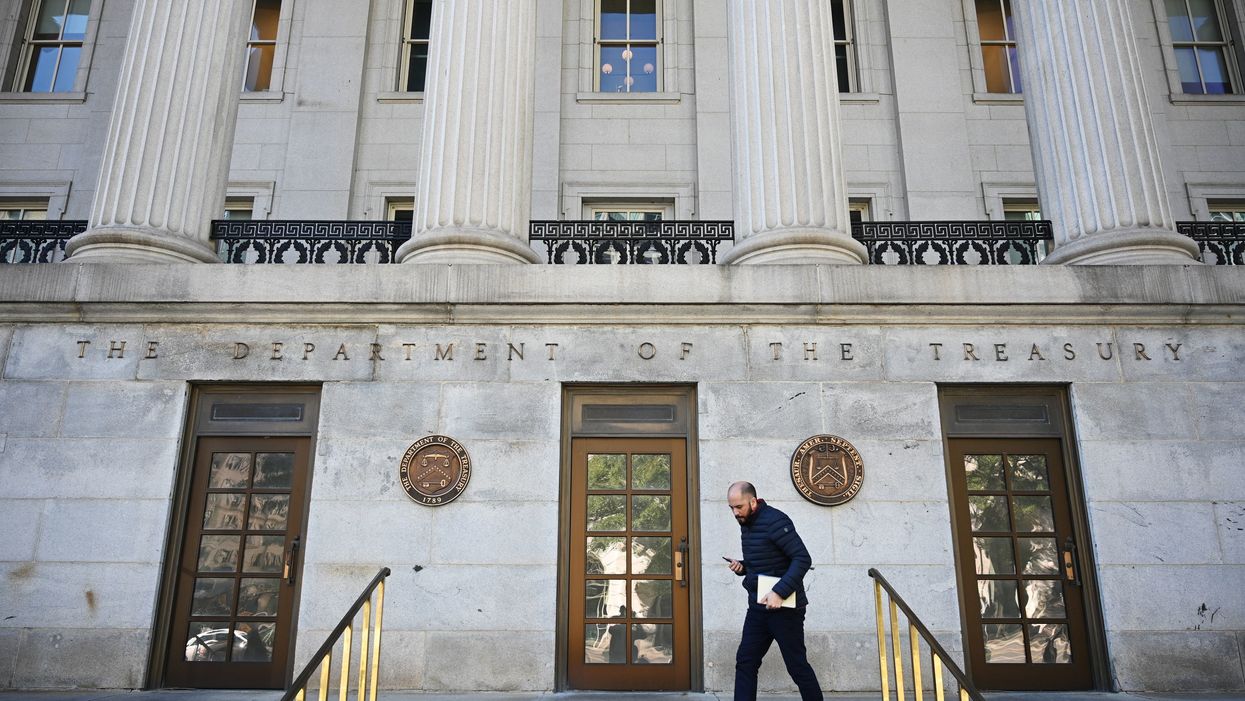
MANDEL NGAN/AFP/Getty Images

The federal budget deficit is expected to continue to grow over the next few years
The U.S. Treasury Department is expected to borrow more than $1 trillion for the second year in a row, according to an analysis from Bloomberg.
Every year, the U.S. borrows money to pay the federal deficit, the gap between the amount of revenue the government raised and what it spent, and the interest on the national debt.
In 2017, the government had to borrow $550 billion to pay for this. Last year, a dramatic increase in funding the U.S. Treasury issued $1.34 trillion in debt. This year, according to an analysis given to Bloomberg by Steven Zeng of Deutsche Bank, it is expected to hit $1.4 trillion. It is also expected to stay above $1 trillion for at least the next four years.
The U.S. federal budget deficit itself hit $780 billion in 2018 — the highest for any year since 2012 — and is expected to be roughly $973 billion this year. In 2020, the Treasury Department expects to pass $1 trillion. The last time the federal budget deficit passed $1 trillion was between 2009 and 2012, when the government was issuing bailouts and other counterrecession efforts.
The national debt itself has climbed to $21.96 trillion. As the total amount of debt increases, so does the amount of interest owed on it annually.
The Trump administration tax cuts had created an economic upswing in the country that increased tax revenue, but not enough to outpace the increase in federal spending.
According to a Congressional Budget Office report in June, deficits should continue to "grow substantially over the next several years, stabilize for a few years, and then grow again over the rest of the 30-year period."
The CBO said that this deficit increase "would arise because spending would grow steadily under current law, and revenues would not keep pace with that spending growth."